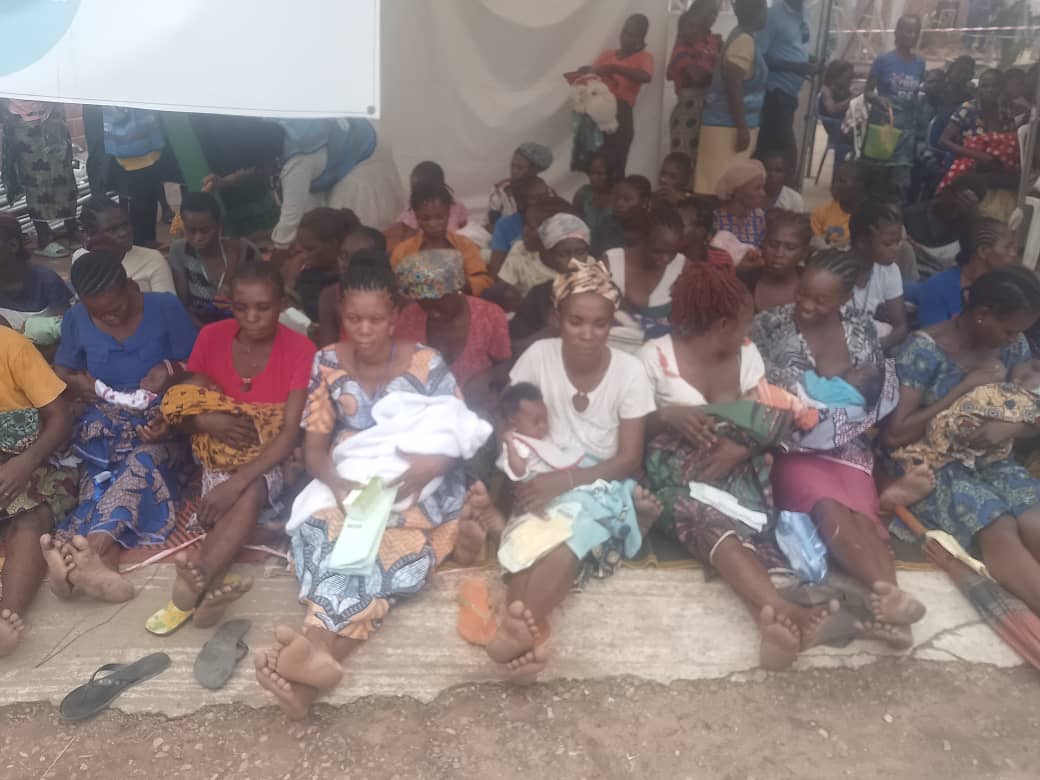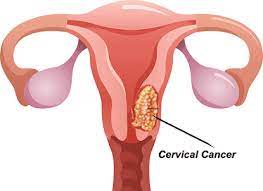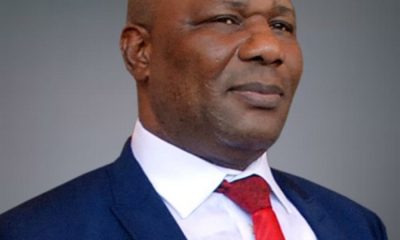Health
Mpox Alert: UNICEF Issues $59m Appeal to Halt Outbreak in Africa

UNICEF has issued an urgent appeal for nearly $59 million to support efforts to halt the rapid spread of mpox in six African countries including Burundi, where youngsters have been impacted the most.UNICEF Regional Health Advisor for Eastern and Southern Africa,Dr Paul Ngwakum diclosed this to journalists in Geneva on Friday.
“Children in Burundi are bearing the brunt of the mpox outbreak with alarming rates of infection and health impacts. “Of the nearly 600 reported cases, two-thirds are children under 19 years old and the situation is escalating really rapidly with more than [a] 40 per cent increase in cases over the last three weeks,” he saidTo date in Burundi there have been more than 14,000 suspected cases but no reported deaths from mpox.Neighbouring Democratic Republic of the Congo, however, has seen nearly 21,900 suspected cases and 717 deaths. The UNICEF official insisted that with funding and prompt action in Burundi, “we have an opportunity to end this outbreak in a very short time period because the geographical area is kind of limited and with concerted effort from all partners.”I think, we can limit the spread; we can contain the virus so we can stop the outbreak without any loss of life.” Following the start of the school year earlier this week in Burundi, the UN agency remains concerned about the rise of mpox among children under five years of age, who represent 30 per cent of reported cases – as in DRC.To help teachers and parents understand the risks and minimisze disruption, the UN agency has supported the education authorities to implement health measures in schools.This is train staff to recognise early symptoms of mpox and reinforce hand hygiene. “Make no mistake, we don’t have all the answers. No one does. This is a rapidly evolving situation, with a new, infectious strain.”We are learning more every day about different modes of transmission.”And with more information, we update our messaging and our response,” Ngwakum said.The UNICEF appeal will also provide mental health support for parents and front-line workers who may face hostility from some communities in part.This is because of the association of mpox with sex, which is responsible for some transmission – but by no means all of it.He said, “Sex in Africa is not something that is spoken of on a daily basis. And if they think you are having a sexually transmitted disease, it stigmatizes you as well.“We try to explain that this is not the case. Most children have it from body-to-body contact or contact with animals or contact with infected materials, which is not having anything to do with human-to-human sexual contamination.”Communities also remain fearful of a repeat of previous serious health outbreaks such as Ebola or COVID-19, “so there is an important role we are playing to dispel myths, and calm fears”, the UNICEF official explained.Highlighting the stark contrast between the high number of suspected deaths from mpox in DRC and Burundi, Dr Margaret Harris from the UN World Health Organization (WHO) explained that this was likely owing to the longstanding humanitarian emergency in eastern DRC.“Many of the children whom we’ve seen horribly, sadly die in the Democratic Republic of Congo were very immuno-suppressed.”This was through being severely malnourished and having suffered the effects of conflict and perhaps also having other diseases at the same time,’’ she said (NAN)Health
World Breastfeeding Week: Benue Yet to Meet National Goal, Global Target of Breastfeeding – UNICEF

World Breastfeeding Week: Benue Yet to Meet National Goal, Global Target of Breastfeeding – UNICEF
From Attah Ede, Makurdi
The United Nations Children’s Fund, (UNICEF) in Benue State, on Friday lamented that the state is yet to meet national goal and global target for breastfeeding and new mothers, saying only one of every two newborns representing 47% are breastfed within the first hour of life in the State.
It further said only one of two children representing 56.
7%, is exclusively breastfed for six months while only 37.6% of children are breastfed up to two years in the State, falling below the national goal of 65% and the global target of 60% by 2025.The UNICEF Chief of Field Office, Enugu, Mrs.Juliet Chiluwe disclosed this during the flag off of the 2025 World Breastfeeding Week at the Benue State University Teaching Hospital (BSUTH) Makurdi and the Ultra-modern International Market (Yelewata) IDP camp.
Mrs. Chiluwe enjoined relevant stakeholders to put mothers and babies first by prioritizing breastfeeding and building sustainable support systems for every mother and child in Nigeria.
She maintained that supporting new mothers to breastfeed exclusively for at least six months is the best method of child nutrition in these critical times, stressing that the method is sustainable, cost-effective, and zero-waste as it does involve packaging, no pollution, but just pure nourishment from mother to child—even in emergencies.
The Chief of Field Office who also congratulated all the mothers in the State, and across the country for breastfeeding their babies, intimated that over 90% of Nigerian mothers breastfeed their babies and advocated that both public and private sectors to give compulsory maternity leave to new mothers and support them with six-month paid maternity leave.
“UNICEF, alongside the Government of Nigeria and our partners, is calling for bold, coordinated action to train every frontline health worker with hands-on breastfeeding support skills especially at birth. Let us invest in community health workers to deliver breastfeeding support where it matters most — at the home — we need to equip our hardworking community workers with the skills to address socio-cultural barriers to exclusive breastfeeding like the practice of giving water to a child under six months .
“As enshrined in the Convention on the Elimination of all forms of Discrimination Against Women, let us walk the talk and make six months paid maternity leave a reality – not just in policy but in practice. In addition, let us make workplaces breastfeeding friendly — all we require is 10 square metres of space to create safe and hygienic lactation spaces, is that too much to ask”, Mrs. Chiluwe stated.
On his part, Chief Medical Director, Benue State University Teaching Hospital (BSUTH), Dr. Stephen Hwande, thanked UNICEF for coming to launch this year’s World Breastfeeding Week at the Teaching Hospital to encourage health workers and encourage them to support every child who is born to be put to the breast immediately.
He disclosed that birth rates at the BSUTH has astronomically increased from 20 to 200 per month as a result of moderate child delivery fee which now stance at N5,000 only.
Dr. Hwande explained that apart from reducing the child delivery fee to an affordable rate, the University Teaching Hospital has opened a Center for children with special needs especially for those children who are unable to do certain things between six to nine months of birth where they can be treated.
“We now have established a therapeutic centre for children with special needs and developmental disorders such as autism, hearing disorder, inability to stand or walk at the right, to turn neck etc”, he said .
The CMD therefore called on new mothers to prioritise breastfeeding of their children, adding investments in breast milk will make their shape, intelligent and enhance their well being.
In her goodwill message, the Executive Secretary, Benue State Primary Healthcare Board, Mrs. Grace Wende, said the theme for 2025 “Prioritze Breastfeeding: Creating Sustainable Support Systems,” resonates deeply with relevant stakeholders commitment to promoting the health and well-being of the Benue populace especially mothers and children.
She insisted that every mother must have access to the support and information she needs to breastfeed as long as she wishes to do so – by investing in skilled breastfeeding counselling, enforcing the International Code of Marketing of Breast-milk Substitutes, and creating environments—at home, in healthcare, and at work—that support and empower women.
According to her, breastfeeding has been linked to improved cognitive development and higher IQ scores and has been shown to reduce the risk of respiratory tract infections, ear infections, and other diseases as well as helps the uterus contract back to its pre-pregnancy size, reducing bleeding and promoting healing.
The director of medical services state ministry of health, Dr. Joshua Agbadu and mother club focal point, Nigeria Red Cross,Hemba Agatha, all commended UNICEF for their numerous intervention particularly in the area of health in the State and promised to support activities that will enhance breastfeeding amongst nursing mothers in the State.
From Attah Ede, Makurdi
The United Nations Children’s Fund, (UNICEF) in Benue State, on Friday lamented that the state is yet to meet national goal and global target for breastfeeding and new mothers, saying only one of every two newborns representing 47% are breastfed within the first hour of life in the State.
It further said only one of two children representing 56.7%, is exclusively breastfed for six months while only 37.6% of children are breastfed up to two years in the State, falling below the national goal of 65% and the global target of 60% by 2025.
The UNICEF Chief of Field Office, Enugu, Mrs.Juliet Chiluwe disclosed this during the flag off of the 2025 World Breastfeeding Week at the Benue State University Teaching Hospital (BSUTH) Makurdi and the Ultra-modern International Market (Yelewata) IDP camp.
Mrs. Chiluwe enjoined relevant stakeholders to put mothers and babies first by prioritizing breastfeeding and building sustainable support systems for every mother and child in Nigeria.
She maintained that supporting new mothers to breastfeed exclusively for at least six months is the best method of child nutrition in these critical times, stressing that the method is sustainable, cost-effective, and zero-waste as it does involve packaging, no pollution, but just pure nourishment from mother to child—even in emergencies.
The Chief of Field Office who also congratulated all the mothers in the State, and across the country for breastfeeding their babies, intimated that over 90% of Nigerian mothers breastfeed their babies and advocated that both public and private sectors to give compulsory maternity leave to new mothers and support them with six-month paid maternity leave.
“UNICEF, alongside the Government of Nigeria and our partners, is calling for bold, coordinated action to train every frontline health worker with hands-on breastfeeding support skills especially at birth. Let us invest in community health workers to deliver breastfeeding support where it matters most — at the home — we need to equip our hardworking community workers with the skills to address socio-cultural barriers to exclusive breastfeeding like the practice of giving water to a child under six months .
“As enshrined in the Convention on the Elimination of all forms of Discrimination Against Women, let us walk the talk and make six months paid maternity leave a reality – not just in policy but in practice. In addition, let us make workplaces breastfeeding friendly — all we require is 10 square metres of space to create safe and hygienic lactation spaces, is that too much to ask”, Mrs. Chiluwe stated.
On his part, Chief Medical Director, Benue State University Teaching Hospital (BSUTH), Dr. Stephen Hwande, thanked UNICEF for coming to launch this year’s World Breastfeeding Week at the Teaching Hospital to encourage health workers and encourage them to support every child who is born to be put to the breast immediately.
He disclosed that birth rates at the BSUTH has astronomically increased from 20 to 200 per month as a result of moderate child delivery fee which now stance at N5,000 only.
Dr. Hwande explained that apart from reducing the child delivery fee to an affordable rate, the University Teaching Hospital has opened a Center for children with special needs especially for those children who are unable to do certain things between six to nine months of birth where they can be treated.
“We now have established a therapeutic centre for children with special needs and developmental disorders such as autism, hearing disorder, inability to stand or walk at the right, to turn neck etc”, he said .
The CMD therefore called on new mothers to prioritise breastfeeding of their children, adding investments in breast milk will make their shape, intelligent and enhance their well being.
In her goodwill message, the Executive Secretary, Benue State Primary Healthcare Board, Mrs. Grace Wende, said the theme for 2025 “Prioritze Breastfeeding: Creating Sustainable Support Systems,” resonates deeply with relevant stakeholders commitment to promoting the health and well-being of the Benue populace especially mothers and children.
She insisted that every mother must have access to the support and information she needs to breastfeed as long as she wishes to do so – by investing in skilled breastfeeding counselling, enforcing the International Code of Marketing of Breast-milk Substitutes, and creating environments—at home, in healthcare, and at work—that support and empower women.
According to her, breastfeeding has been linked to improved cognitive development and higher IQ scores and has been shown to reduce the risk of respiratory tract infections, ear infections, and other diseases as well as helps the uterus contract back to its pre-pregnancy size, reducing bleeding and promoting healing.
The director of medical services state ministry of health, Dr. Joshua Agbadu and mother club focal point, Nigeria Red Cross,Hemba Agatha, all commended UNICEF for their numerous intervention particularly in the area of health in the State and promised to support activities that will enhance breastfeeding amongst nursing mothers in the State.
Health
Experts Seek Unified Action against Cervical Cancer

Torough David, Abuja
Stakeholders across health sectors have called for urgent, coordinated investment in prevention, equitable HPV vaccine access and harmonized health data to accelerate progress towards elimination of cervical cancer across Africa.
They made the call on Wednesday, during a panel session with the Theme ”Accelerating Cervical Cancer Elimination in Nigeria, From Policy to Practice”.
Head of Division, Maternal, Newborn, Child and Adolescent Health, Africa CDC, Dr Fidele Ngabo Gaga, highlighted its efforts to harmonise and aggregate health data across all 55 African Union (AU) Member States.
“We are developing a continent-wide data-sharing agreement and centralised repository to support data upstreaming and policy development.
“The goal is to present unified data at AU Summits, helping countries make evidence-based decisions,” Gaga said:
Prof. Imran Morhason-Bello, a leading gynaecologic oncologist from the University College Hospital, Ibadan, made a compelling financial case for prioritising prevention over treatment.
“Screening just between 2023 and 2027 will cost Nigeria N351 billion.
“But treating 10,000 women with invasive cervical cancer from 2027 to 2030 could cost us N1.4 trillion. Prevention is not only more humane, it is far more cost-effective,” he said.
Morhason-Bello also addressed innovations such as self-sampling for HPV testing, already being implemented in Nigeria through implementation science.
“Women receive a self-sampling kit, return it the same day, and positive results are treated before noon.
“It is happening in markets and schools. It is not a pilot, it is real.
“We have even developed a mobile app (available in multiple languages and offline) to guide women through the self-sampling process, increasing accessibility in low-resource settings,” he said.
External Affairs Director for MSD, Sub-Saharan Africa, Vuyo Mjekula, addressed one of the most common myths around the HPV vaccine rollout.
“Let me be clear, there is no shortage of HPV vaccines. If anyone tells you otherwise, call me directly. The real issue is equity and strategic allocation,” she said.
Mjekula recalled early proposals that included boys in HPV vaccination efforts, but warned that without careful planning, some countries would be left out entirely.
She called for one national policy that ensures equitable access to vaccines and services, especially for the most vulnerable girls.
“This is not about science alone. A dose costing N125,000 may be affordable to some, but to a woman in a rural village, it is like N10 million.
“If she must choose between survival and feeding her children, the answer is obvious,” she said.
She applauded Nigeria’s progress, noting that since the national rollout, the number of vaccinated girls across the continent has more than doubled, driven primarily by Nigeria’s leadership.
Mjekula also made an appeal for multi-sectoral collaboration, urging the involvement of private sector giants, from banks to telecoms and philanthropic foundations.
“Health is not just the government’s responsibility. We need to imagine beyond the healthcare we can afford with public funds and work toward the healthcare we want as a society,” she said.
She also called for a business case for investment in HPV prevention and cancer control, saying the task force must work hand-in-hand with all stakeholders.
“Let us go far together. If you want to go quickly, go alone. But if you want to go far, go together,” she said.
The symposium concluded with a call to integrate cancer screening into primary health care services.
It also called for the deployment of cost-effective technologies like self-sampling, addressing myths around vaccine shortages, and ensuring gender-sensitive, data-informed policies.
As Nigeria and the continent advance towards achieving the WHO 90-70-90 cervical cancer elimination targets, the message from experts was clear: “Let us do big and let us do it together”.
Health
89% of Infants Vaccinated Globally in 2024, WHO, UNICEF Warn of Risks

The United Nations agencies have reported that in 2024, approximately 89 per cent of infants worldwide, about 115 million children, received at least one dose of the diphtheria, tetanus, and pertussis (DTP) vaccine.This update comes from new national immunisation coverage data released on July 14 by the World Health Organisation (WHO) and the United Nations Children’s Fund (UNICEF).
Compared to 2023, an additional 171,000 children received at least one vaccine dose, and one million more completed the full three-dose DTP series. While these gains are modest, they reflect ongoing global efforts to protect children in spite of rising challenges.However, nearly 20 million infants still missed at least one DTP vaccine dose in 2024, including 14.3 million “zero-dose” children who never received any vaccine.This figure exceeds the 2024 target by four million, putting global immunisation goals outlined in the Immunisation Agenda 2030 at risk.WHO Director-General Dr Tedros Ghebreyesus emphasised the life-saving power of vaccines, stating, “It’s encouraging to see an increase in children vaccinated, but we still have much work to do. “Cuts in aid and vaccine misinformation threaten to reverse decades of progress.”He highlighted factors contributing to under-vaccination, including limited healthcare access, supply disruptions, conflict, and misinformation.“Data from 195 countries show 131 have consistently reached at least 90 per cent coverage with the first DTP dose since 2019. Yet, progress is stalling in 47 countries, with 22 nations seeing declines after previously meeting this target.”Tedros warned that conflict and humanitarian crises significantly undermined vaccination efforts.“A quarter of the world’s infants live in 26 fragile or conflict-affected countries, which account for half of all unvaccinated children globally.“In these areas, unvaccinated children rose from 3.6 million in 2019 to 5.4 million in 2024, highlighting an urgent need for integrated immunisation in humanitarian responses.“Immunisation coverage in 57 low-income countries supported by Gavi, the Vaccine Alliance, improved in 2024, reducing the number of under-vaccinated children by about 650,000.“Yet, some upper-middle- and high-income countries face early signs of declining coverage, which increases the risk of disease outbreaks.”UNICEF Executive Director Catherine Russell welcomed the progress but warned millions of children remained vulnerable to preventable diseases.She called for urgent action to overcome barriers such as shrinking health budgets, fragile systems, misinformation, and conflict-related access issues.Russell noted encouraging expansions in vaccines against HPV, meningitis, pneumococcal disease, polio, and rotavirus.“Global HPV vaccine coverage among eligible adolescent girls rose from 17 per cent in 2019 to 31 per cent in 2024, although it remains far below the 90 per cent target set for 2030.”Gavi CEO Dr Sania Nishtar added that while lower-income countries protected more children than ever, population growth, fragility, and conflict continued to hamper equity in vaccination efforts.She highlighted improvements in measles coverage but cautioned that it still fell short of the 95 per cent threshold required to prevent outbreaks.“Measles outbreaks nearly doubled from 33 countries in 2022 to 60 in 2024.”Nishtar stressed that funding shortfalls, instability, and rising misinformation threaten to stall or reverse progress, risking increased deaths from vaccine-preventable diseases.WHO and UNICEF called on governments and partners to close funding gaps for Gavi’s 2026–2030 strategic cycle to protect millions of children.They also urged strengthening immunisation efforts in conflict-affected and fragile settings, and prioritising locally led strategies and increased domestic investment in primary healthcare systems.Additionally, the agencies emphasised the need to counter vaccine misinformation through evidence-based campaigns.They also called for greater investment in robust data collection and disease surveillance systems to guide effective immunisation programmes. (NAN)

















